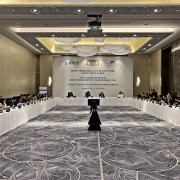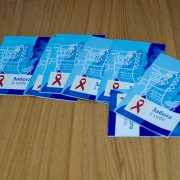Speeches Shim
Bordering China and Russia, Kazakhstan, the largest economy in Central Asia, is a key strategic partner in promoting democracy and advancing stability across the region. To deepen democratic principles and increase regional prosperity, the United States partners with Kazakhstan to strengthen its civil society, advance private sector engagement, boost trade and energy production, combat health threats, and foster long-term resilience and self-reliance.
The United States Government has supported the Government of Kazakhstan’s efforts to respond to the COVID-19 pandemic, providing life-saving equipment, laboratory and medical supplies, and technical assistance.

Kazakhstan enjoys the largest economy in Central Asia while serving as a link between fast-growing markets in Asia and those of Russia and Western Europe by road, rail, and a port. At the same time, Kazakhstan continues to have below-average rates of employment, tax revenue and an underdeveloped private sector. Despite institutional and legal reforms, concerns remain about the protection of law enforcement and investors rights in court. Investors have repeatedly cited the need for improved regulations since almost all disputes previously resolved were in favor of the state.
The newly commenced USAID-funded Kazakhstan Rule of Law program, launched in October 2020 will support strengthening of the rule of law sector in Kazakhstan through targeted cooperation in the judiciary, business and civil society environments. Based on the lessons learnt from the predecessor, Kazakhstan Judicial Program, the Kazakhstan Rule of Law program will support the Government of Kazakhstan to increase its transparency and openness by providing opportunities for businesses, civil society organizations (CSO), lawyers, and other interested stakeholders to interact with each other and advocate for change.

Today, the United States in partnership with the Central Asian Association of People Living with HIV marked the successful completion of its LEADER for People Living with HIV program funded by the U.S. Agency for International Development (USAID) and the U.S. President’s Emergency Plan For AIDS Relief (PEPFAR). Over the past six years, in addition to strengthening service delivery, the program addressed two major obstacles to HIV prevention, care and treatment: stigma and discrimination.


Comment
Make a general inquiry or suggest an improvement.